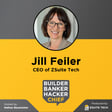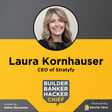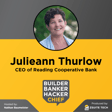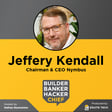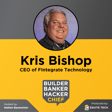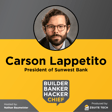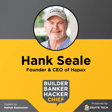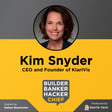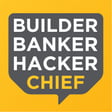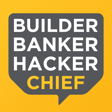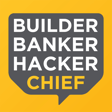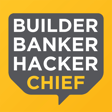
Tanya Van Court – Being the bridge for others, driving on the Autobahn, and educating for generational wealth | Episode 15
Welcome to episode fifteen of Builder, Banker, Hacker, Chief! Joining me today is Tanya Van Court, Founder and CEO of Goalsetter.
On this show, I’m unpacking the stories, decisions, and influences that make people successful leaders. Tanya comes from a line of strong women who became living bridges to support their families and communities. Tanya is carrying that legacy forward and scaling it way up.
My name is Nathan Baumeister; I am the Co-founder and CEO of ZSuite Tech and the host of this podcast.
As an single mother and elementary school teacher Tanya’s mother was devoted to her children and her students. Unfortunately, she passed away when Tanya was six-years-old. Tanya’s aunt stepped into the gap and adopted her nieces and nephews.
With those loving and unbelievably resilient role-models as her springboard, Tanya went on to earn a double engineering degree from Stanford, and then work in multiple high-profile roles in technology and media, including QWEST, Cablevision, ESPN, Nickelodeon and Discovery.
The impetus for starting her own company, Goalsetter, came from a financial catastrophe early in her career, when more than a million dollars in stock options went to almost nothing as the Dot Com Bubble burst in 2001. Many years later, Tanya saw a massive opportunity to teach children the knowledge and habits of wealth building.
Today, Tanya Van Court is bringing all of her wisdom and technical expertise to bear on this issue. Goalsetter is award-winning company that is transforming how families learn and practice sound financial principles. The stories she tells about what these young kids are achieving with their money is so inspiring.
Maybe you saw Tanya on Shark Tank back in 2009 and wondered what happened. We’re thrilled to say that Goalsetter is making major waves in the industry, recently closing another round of funding with investors such as Edward Jones, MassMutual, and Fiserv.
Now you get to the full story of how Tanya has built this incredible company to be a financial bridge for the next generation of children.
Resources:
Tanya’s recommendations:
Book: Finding Me: A Memoir by Viola Davis
Connect:
